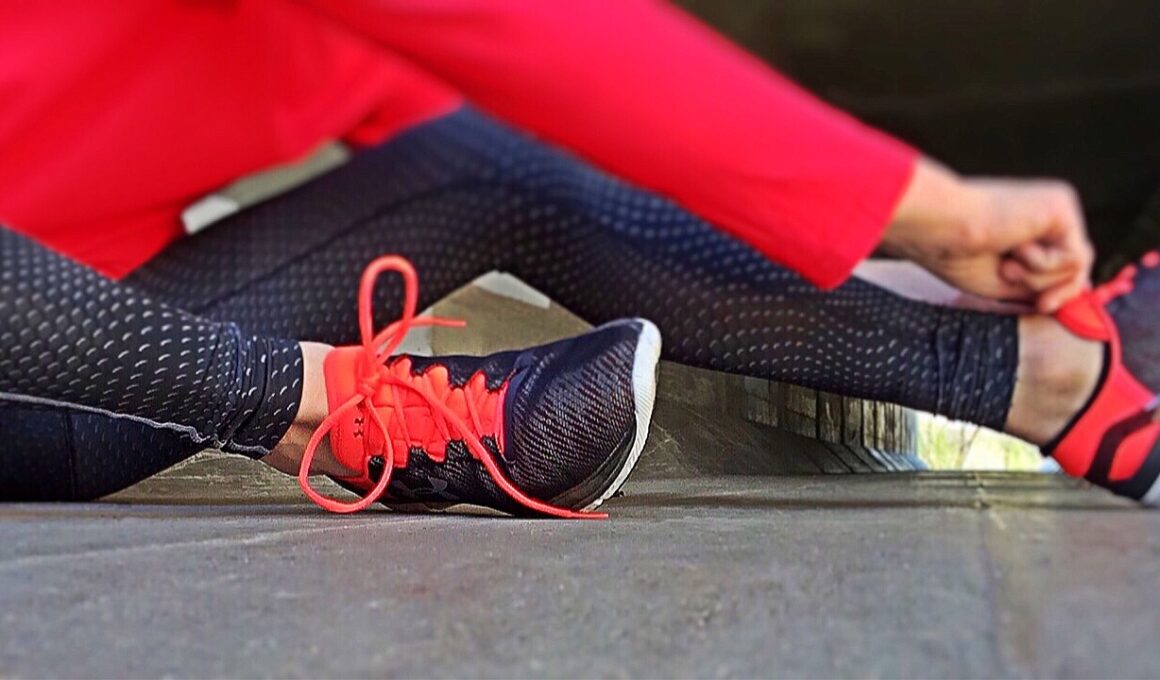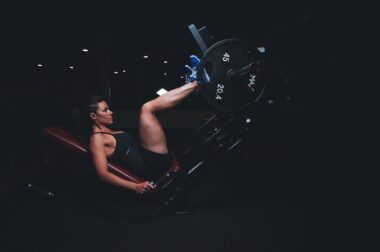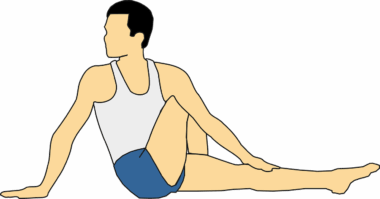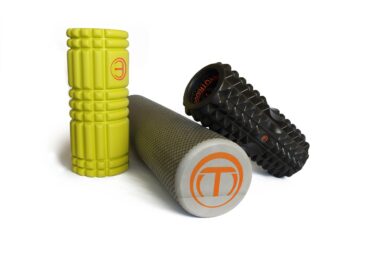Common Mistakes in Pre-Workout Preparation to Avoid
When preparing for a workout, many individuals overlook the importance of proper nutrition prior to exercising. This is a vital step as it sets the tone for an effective training session. Skipping meals or not eating anything substantial before working out can lead to low energy levels and poor performance. It is important to fuel the body adequately to avoid fatigue. Instead of dismissing nutrition, consider planning meals that include complex carbohydrates, lean proteins, and healthy fats. For example, consuming oatmeal with fruit or a smoothie containing protein powder can provide lasting energy. Furthermore, staying hydrated is equally essential. Dehydration can significantly impair strength and endurance during workouts. Therefore, always aim to drink plenty of water throughout the day and consider adding electrolytes into your pre-workout regimen. Remember, the body is like a car engine; it needs the right fuel to run efficiently. Many athletes find improvement in their performance simply by treating their nutrition with greater importance.
Another common mistake occurs when individuals fail to properly warm up before starting a workout. Warming up is critical for preparing muscles, reducing injury risk, and improving overall performance. A simple routine of dynamic stretches or light cardiovascular exercises can greatly enhance blood flow and flexibility. Neglecting this vital step can lead to stiffness and increase the likelihood of strains. A well-structured warm-up should last about 5 to 10 minutes, focusing on different muscle groups you’ll engage during your workout. For instance, leg swings, high knees, and arm circles can be excellent warm-up exercises. Also, remember that cooling down post-workout is equally important for recovery. Skipping cooldown segments can lead to soreness and prolonged recovery times. Incorporating low-intensity movements along with static stretching can aid muscle recovery and help maintain flexibility. In summary, take time to create an effective warm-up and cooldown strategy, as this can help you perform better in your workouts while also promoting long-term fitness sustainability.
Overtraining and Its Consequences
Overtraining is another frequently overlooked aspect of workout preparation. Many gym-goers feel the need to push their limits without allowing sufficient recovery time. This can lead to fatigue, decreased performance, and even injury. Recognizing the signs of overtraining is crucial; symptoms may include lingering soreness, sleep disturbances, and irritability. Therefore, it is essential to listen to your body and incorporate rest days into your training routine. It’s not just about working hard but also working smart. Also consider incorporating variety into your workout routine. This can help prevent overuse injuries while keeping your regimen engaging. Alternatives like yoga, swimming, or cycling can provide physical benefits while aiding recovery. Additionally, be sure to include proper nutrition that supports muscle repair, such as foods rich in protein and antioxidants. An effective strategy for avoiding overtraining is to follow a balanced program that emphasizes both strength and cardiovascular training. Always remember that quality rest and recovery are key to achieving long-term fitness goals, ensuring your body stays healthy and capable.
Moreover, many individuals underestimate the effect of appropriate clothing and gear for workout sessions. Wearing proper attire can significantly influence comfort and performance. Avoid cotton fabrics that trap moisture and choose breathable materials instead. Sports bras and moisture-wicking shirts can help regulate temperature while you exercise. Footwear is another critical component; choosing shoes appropriate for your workout type can lead to better support and performance. For instance, running shoes have different designs compared to weightlifting shoes. Also, assess whether extra accessories, like gloves or supportive wraps, could enhance your workout experience. Remember that discomfort due to inappropriate gear can distract you from achieving your exercise goals. To prevent any unnecessary distractions, prioritize investing in clothing that offers flexibility, support, and comfort. Practical accessories may seem trivial, but they can make a significant difference in ensuring a focused and productive workout session. Overall, be proactive in selecting gear suitable for your physical activities to not only enhance performance but also enrich the workout experience.
Neglecting Routine Assessment
Periodically evaluating workout routines is often neglected in pre-workout planning. Sticking blindly to the same exercises can lead to plateaus in performance. By failing to assess routines regularly, you might not see the desired improvements in strength or endurance. Incorporate periodic assessments; note progress and determine which areas need addressing. Making time for a weekly or monthly review can help you identify effective practices and form new goals. Additionally, avoid falling into the trap of comparing yourself to others. Individual fitness journeys vary significantly; recognize your unique progression. Establishing personal benchmarks will keep you motivated and focused on long-term success. Ensure your routine aligns with your fitness objectives, whether that means adjusting the frequency, intensity, or kind of exercise performed. Also, consider seeking input from a fitness professional who can provide expert advice tailored to your individual needs. By maintaining a proactive approach to assessing your routine, increased satisfaction in your fitness journey and a more effective workout session can be attained.
Lastly, a critical mistake during pre-workout preparation is disregarding mental readiness. A positive mindset can dramatically improve workout effectiveness. Visualizing success and setting specific goals can boost motivation and help establish focus during exercises. Creating a pre-workout ritual, such as practicing mindfulness or listening to uplifting music, can foster this mental readiness. Remember that fitness isn’t just physical; mental strength plays an equally important role. Take time before workouts to tune into your mindset; it may define your whole training experience. Surrounding yourself with positive energy and supportive environments further promotes mental resilience. Embrace affirmations or motivational quotes, as they can fuel determination. Additionally, consider journaling your feelings or experiences surrounding workouts as a way to engage with your mental state. Gathering insights from these practices can empower you to build a more robust mental approach to your fitness routine. Ultimately, a balanced focus on both physical and mental preparation can lead to enhanced satisfaction and enjoyment during each workout session, promoting overall fitness success.
Final Thoughts on Pre-Workout Strategies
In conclusion, optimizing pre-workout preparation involves a series of deliberate actions. To avoid common mistakes, focus on nutrition, proper warm-ups, rest days, suitable gear, routine assessments, and mental preparedness. Addressing these aspects will not only enhance performance but also promote a sustainable and enjoyable fitness journey. Emphasizing nutrition is essential; remember, what you consume can profoundly affect your workout. Deliberate warm-ups should become a staple in your routine to minimize injury risks. Allowing time for recovery ensures optimal performance over time. Prioritize investing in gear that supports your unique activities, helping create a comfortable environment to excel. Periodic assessments will keep your regimen aligned with your goals, while mental readiness fosters the motivation needed for each session. Striving for balance across these facets will ultimately lead to the greatest overall success in your fitness endeavors. Utilize these insights to cultivate a healthy and happy relationship with fitness. With consistent effort and attention to these critical elements, achieving personal fitness goals will become more attainable. Stay focused, stay strong, and embrace the journey!
In the ever-evolving landscape of fitness, knowledge is power. The importance of implementing these strategies can greatly enhance overall workouts. As you refine your preparations, remember that improvements take time yet they are achievable. Always prioritize well-being, ensure nutrition, and actively listen to your body, as this will lead to long-term gains. Stay educated and informed while navigating your fitness path and consider joining communities that can offer additional support. Share your experiences, learn from others, and most importantly, enjoy the journey ahead.





